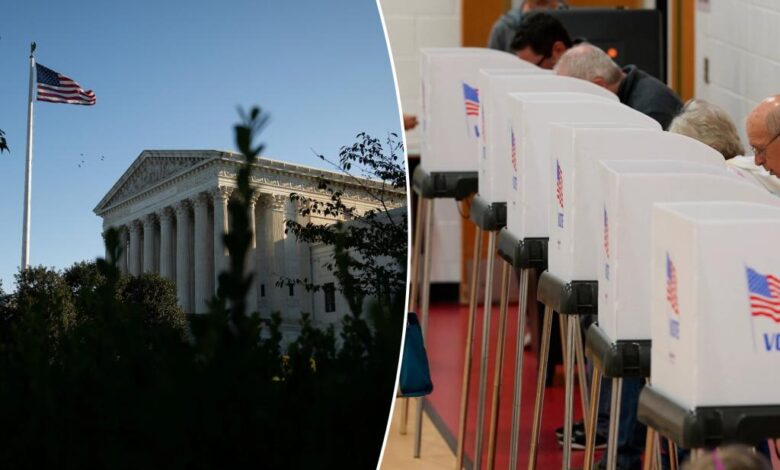Federal panel weakens Voting Rights Act, queuing up likely SCOTUS showdown

A federal appeals panel nixed a core mechanism for disenfranchised people to sue under the Voting Rights Act, setting the stage for a likely appeal to the Supreme Court.
Three judges on the 8th US Circuit Court of Appeals ruled Monday that private citizens and civil rights groups can’t use Section 2 of the 1965 law, which bars voting practices that discriminate based on factors like race.
Now, only the federal government can file lawsuits in those cases, the panel concluded.
For decades, ordinary citizens and civil rights groups filed cases under Section 2 to address their allegations of discrimination.
But in a 2-1 vote, the panel concluded there is no “private right of action.”
The judges concluded that in the “text and structure” of the Voting Rights Act, Congress did not explicitly give private individuals the right to sue under Section 2.
“For much of the last half-century, courts have assumed that [Section 2] is privately enforceable. A deeper look has revealed that this assumption rests on flimsy footing,” Circuit Judge David Stras, a Trump appointee, wrote.
Stras was backed by Judge Raymond Gruender, a George W. Bush appointee, while Chief Circuit Judge Lavenski Smith, also a Bush appointee, dissented.
“Until the [Supreme] Court rules or Congress amends the statute, I would follow existing precedent that permits citizens to seek a judicial remedy,” Smith argued.
“Rights so foundational to self-government and citizenship should not depend solely on the discretion or availability of the government’s agents.”
At issue for the 8th Circuit panel was an Arkansas redistricting case about who could sue.
The decision Monday tossed out that case in which plaintiffs argued that Arkansas’ congressional map discriminated against minorities.
In February 2022, US District Judge Lee Rudofsky, a Trump appointee, ruled that the federal government had to bring forward such cases.
The decision by the 8th Circuit panel upholds that ruling.
An appeal could be taken to the full 8th Circuit, then to the Supreme Court.
Earlier this year, the high court affirmed Section 2 in the Voting Rights Act during an Alabama redistricting case by allowing the drawing of a congressional map with greater representation for black voters to proceed.
Get Best News and Web Services here







